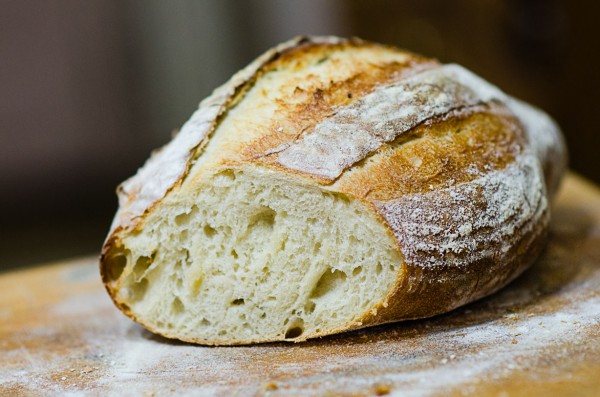baking
Baklava: A Matter Of Layers
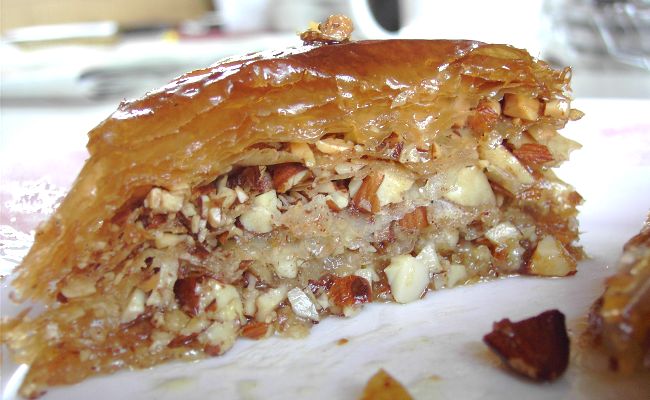
Baklava is a sweet Middle-Eastern dessert that is associated with a long and tedious assembly process. According to Seasoned Advice user Trey Jackson there is a faster way that is equally good.
Fancy silpat, traditional parchment paper, or plain baking sheet? We experiment with cookies
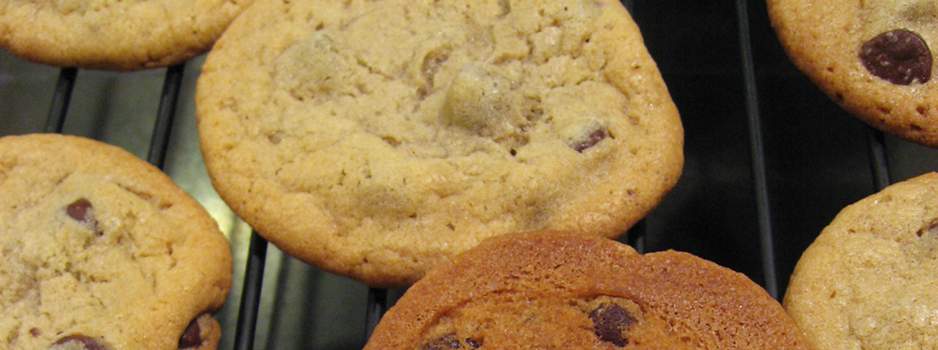
The accepted wisdom is that cookies baked directly on something other than an ungreased baking sheet will burn less. I tend to use parchment paper for my baking, but I wanted to test how much it really matters. In addition to the bare cookie sheet, I had parchment paper and a silicone baking mat, so I got to making the cookies. more »
Taking your bread to the next level with steam
You’ve baked your first loaf of bread. It was good. It was clearly better than store bought bread. But—you know it could be better. It just wasn’t quite there, yet. So where do you go next? The answer is steam. Adding steam to the oven is transformative: loaves rise, crusts brown and crackle, and baby unicorns take up residence in the open crumb. (Ok, maybe not all of that happens, but trust me, it’s good.)
Cookies, meet flavor
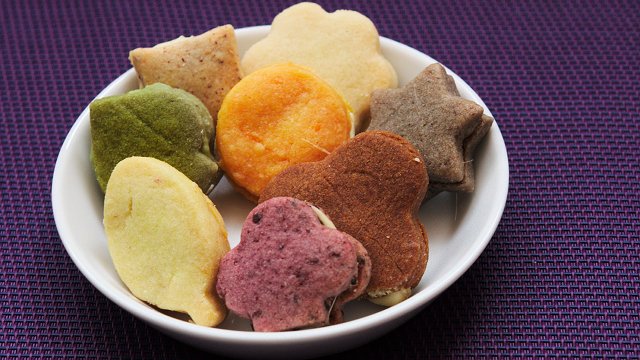 I had always associated shortbread cookies with boredom: heavy, unremarkable flavors like vanilla, almond, or—when the chef feels particularly adventurous—hazelnut and rum. Smitten Kitchen’s recipe changed that, using the very plainness that bored me as a canvas for the fresh flavor of matcha. Even before baking them, I could taste the mild astringency of the green tea, the combination of tender cookie and creamy white chocolate ganache filling allowing the grassy notes to shine.
I had always associated shortbread cookies with boredom: heavy, unremarkable flavors like vanilla, almond, or—when the chef feels particularly adventurous—hazelnut and rum. Smitten Kitchen’s recipe changed that, using the very plainness that bored me as a canvas for the fresh flavor of matcha. Even before baking them, I could taste the mild astringency of the green tea, the combination of tender cookie and creamy white chocolate ganache filling allowing the grassy notes to shine.
I would have baked them the minute I discovered them, but I had no matcha. I started thinking of alternatives, but most were ingredients I didn’t have handy. I wondered which one would be best but, even after asking a question on our site, could not decide. There seems to be no previous experience with fresh, lively shortbread cookies.
If I wanted to know, I would have to find out myself.
Bread Hydration Experiment
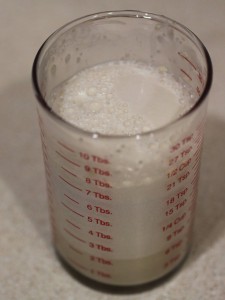 When you search out bread recipes—whether in artisan baking books or on the Internet—you quickly notice patterns: the breads with an open, irregular crumb are all made from very wet (high hydration) dough and the recipes commonly feature preferments, slow rises, a particular hand kneading technique, and carefully pouring boiling water into a very hot oven. But only the wet dough seems unique to them.
When you search out bread recipes—whether in artisan baking books or on the Internet—you quickly notice patterns: the breads with an open, irregular crumb are all made from very wet (high hydration) dough and the recipes commonly feature preferments, slow rises, a particular hand kneading technique, and carefully pouring boiling water into a very hot oven. But only the wet dough seems unique to them.
If you look around Internet (including our own site), you quickly come to the conclusion that the wetness of the dough is what gives rise to the crumb. For example, a random artisan bakery says:
The amount of water in a dough defines the type of bread it will make.
Looking in books seems to support that. For example, The Bread Baker’s Apprentice classifies breads based on their hydration, referring to the wet ones as rustic.
Can it be that easy? To get an irregular, open crumb, just add water? Sure, without all the other steps, it won’t be quite as tasty, but home-made sandwich bread even without those steps is still tastier than the supermarket stuff.
This calls for an experiment!

